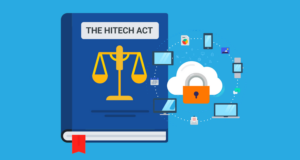What is the HITECH ACT?
The Health Information Technology for Economic and Clinical Health Act (HITECH Act) is part of the American Recovery and Reinvestment Act of 2009 (ARRA). Why is the HITECH ACT important? The HITECH Act was created to motivate the implementation of electronic health records (EHR) and supporting technology in the United States.
President Obama signed HITECH into law on February 17, 2009 as part of the American Recovery and Reinvestment Act of 2009 (ARRA), an economic stimulus bill.
The HITECH Act of 2009 anticipated the expansion in the exchange of electronic protected health information (ePHI) between doctors, hospitals, and other entities that store ePHI for the sole reason of cutting down on the cost of healthcare by sharing. The HITECH Act of 2009 expanded the scope of privacy and security protections available under HIPAA compliance by increasing the potential legal liability for non-compliance and it providing for more stringent enforcement.
The HITECH Act specifies that by the beginning of 2011, healthcare providers will be given monetary incentives for being able to demonstrate meaningful use of electronic health records (EHR). These monetary incentives will be offered until 2015, after which time penalties will be levied for failing to demonstrate such use. Many of the HITECH Act’s requirements became effective 12 months from the date of enactment.





